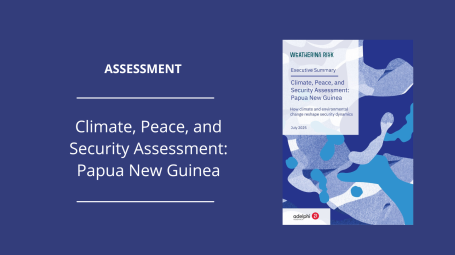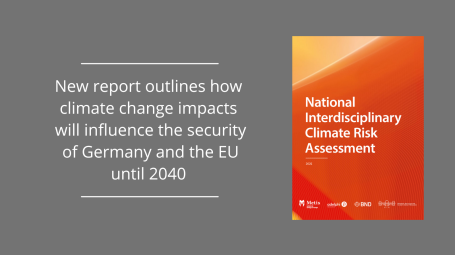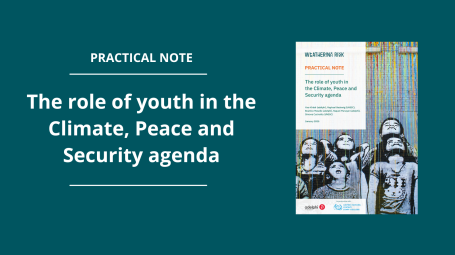-
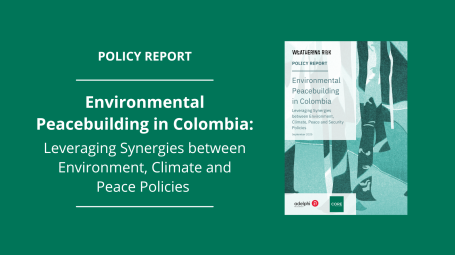
Environmental Peacebuilding in Colombia
This report analyses the peacebuilding policy approaches of the Santos, Duque, and Petro administrations in Colombia and explores environmental peacebuilding good practices at the local level to address the intricate relationship between environmental degradation, climate change, and peacebuilding efforts. It presents recommendations for implementing an Environmental Peacebuilding Policy (EPP) to strengthen resilience and achieve sustainable peace. -
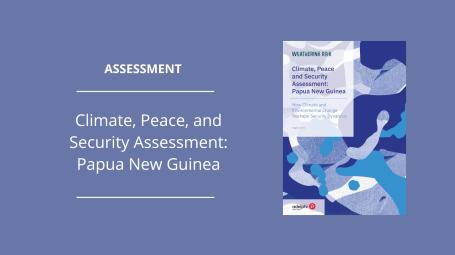
Climate, Peace and Security Assessment: Papua New Guinea
Papua New Guinea (PNG) is at a pivotal moment, facing the converging threats of climate change, environmental degradation and persistent insecurity. These intersecting challenges demand urgent and coordinated action by all relevant stakeholders. This assessment aims to provide up-to-date evidence to support policy planning and programming in PNG’s various regions and offers recommendations to strengthen the country’s resilience and enhance its capacity to cope, withstand and respond to concurrent shocks. -
Climate, Peace and Security Assessment: Papua New Guinea - Executive Summary
This assessment identifies six interconnected pathways through which climate and environmental changes amplify security risks in PNG and eight priority recommendation areas. -
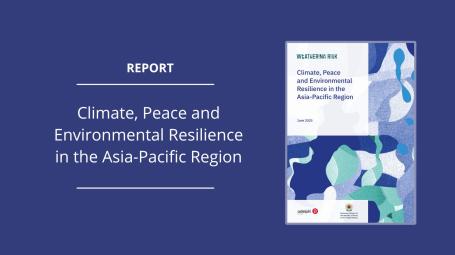
Climate, Peace and Environmental Resilience in the Asia-Pacific Region
From rising sea levels to intensifying competition over natural resources, climate change is posing critical threats to peace, stability and development across the Asia-Pacific region. Despite increasing climate-related security risks, international discussions have often overlooked the region’s experiences and expertise. This report seeks to address that gap. -
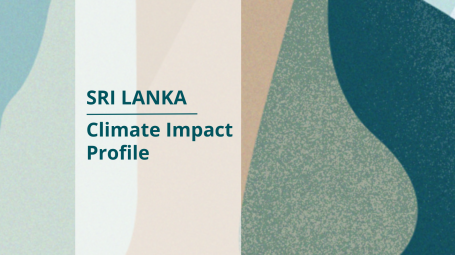
Climate Impact Profile: Sri Lanka
Sri Lanka is particularly vulnerable to the impacts of climate change. This profile provides an overview of climate trends for short-term (2020-39) and medium-term time periods under both higher emissions (SSP3-7.0) and lower-emission (SSP1-2.6) scenarios and their impacts across different sectors. -
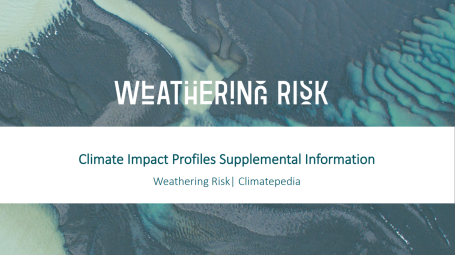
Climate Impact Profile Supplementary Information
These profiles provide forward-looking data on a region's climate – including projected parameters under various emission scenarios across key sectors – with the goal of supporting resilience-oriented short and long-term planning. The following resource serves to elaborate upon the data sources and methods mentioned in Climate Impact Profiles for technical users. -
The Future of UN Peacekeeping in a Changing Climate
Climate change creates significant challenges for UN peacekeeping operations and increases the urgency and complexity of maintaining peace and security in fragile settings. The links between climate change, conflict and peace are becoming increasingly evident, as climate impacts exacerbate resource competition, destabilise communities, and fuel tensions. This policy paper provides recommendations for integrating climate change considerations into UN peacekeeping missions. -
Germany's National Interdisciplinary Climate Risk Assessment (Nationale Interdisziplinäre Klimarisiko Einschätzung)
What risks does the climate crisis pose to Germany's national security? Authored by a consortium comprising Germany's federal intelligence service and leading scientific institutions, including adelphi research, this document is the first comprehensive strategic assessment of climate risks to German national security. -
The role of youth in the Climate, Peace and Security agenda
This practical note provides a synthesis of the discussions that took place on the sidelines of the Berlin Climate and Security Conference 2024. It makes the case for the centrality of the meaningful participation of youth in the Climate, Peace and Security agenda. It outlines challenges, emerging good practices and recommendations for the UN system, member states, donors, researchers and practitioners.


